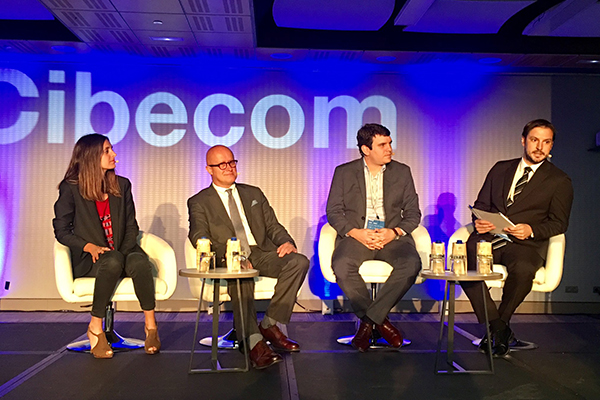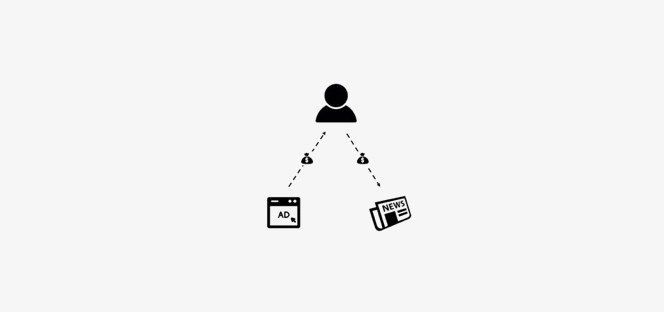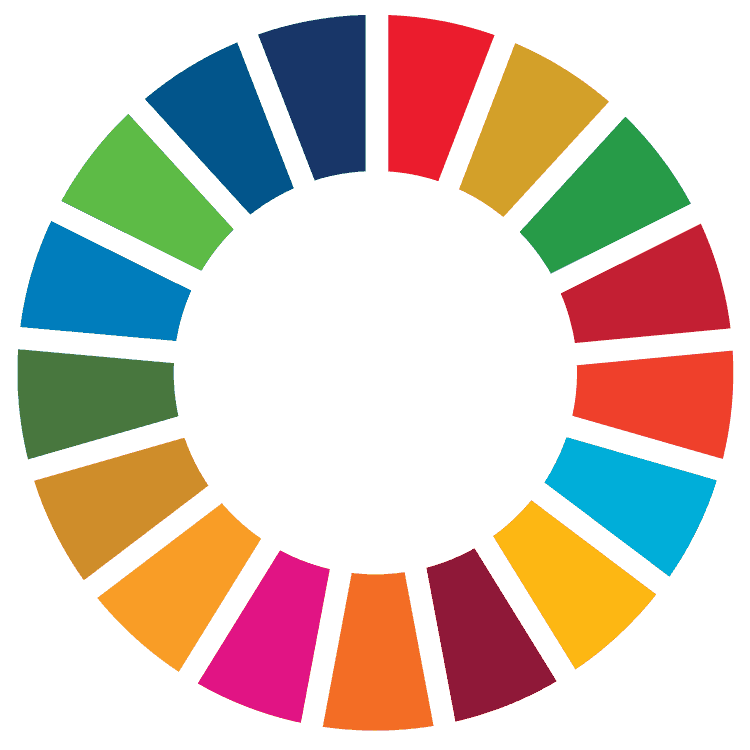Blockchain by Alejandro Dominguez, apple tree’s Director of Innovation
We’ve been hearing about Blockchain for a while now, but information does not necessarily lead to understanding, which has been the case for the majority of communications professionals. Among other applications, blockchain has the curious tendency to elicit two diametrically opposing reactions from those who hear its name: “Ooh that stuff is complicated though” and “Isn’t that the Bitcoin thing?”
Let’s quickly do away with these preconceptions… Blockchain is indeed the technology that is the basis for Bitcoin, but its applications go well beyond those related to cryptocurrencies. And yes, understanding exactly how blockchain works is not easy, but that doesn’t mean that we shouldn’t try to understand it on a more basic level or appreciate the many ways it can be used. If we needed to be experts in every kind of technology we use, we wouldn’t we be using the internet, mobile phones or even cars. You don’t need to be an engineer to delve into the world of blockchain, what is really important is understanding its features, benefits and the possibilities that it opens up. So, what are they?
Blockchain is a distributed database that stores information and the changes that information undergoes, as well as identifying the members that are involved in these changes. It is a technology that uses cryptographic techniques to make value/information transactions more agile. Its main traits are: it functions as a decentralized network without the need for intermediaries, it is accessible, totally traceable and absolutely incorruptible which is what makes the information it carries so trustworthy and transparent. With these characteristics, it looks like it could be useful for any sector that involves intermediaries where confidence, traceability and transparency are important. Wouldn’t you say so? For me, sectors like banking, public administration, insurance and the media are all possible candidates…

What does the information market look like now?
The advent of the web 2.0 marked the beginning of a period of great change for the media as well as for public relations, the challenges we face now are different to those from a decade ago:
- Social networks who claimed to remove the middle men have simply become the middle men themselves
- The titans of the internet: Facebook, Google, Amazon, etc. hold the keys to our more and more of data.
- Levels of trust in social media are at an all-time low.
- The media’s commitment to advertising is causing it to lose credibility while its audience grows ever more critical; questioning the commercial motivations of senior executives.
- Political and commercial interests are giving rise to problems with clickbait, bots and the headline act of the last few years: fake news.
What is certain is that levels of trust both in the media and in social networks have reached crisis point, signalling perhaps the perfect moment to introduce a technology that offers increased transparency and more trustworthy information.
The token economy
Before exploring how blockchain could affect communication, it is important to understand one of the key concepts in its ecosystem: the token.
Tokens are privately generated units of value. We can find examples of tokens outside the digital sphere such as loyalty points for a business or an airline, casino chips or laundry tokens for washing machines.
Using blockchain, these exchanges of goods and services are traceable, immutable, transparent, decentralised and offer immediate liquidity within the digital environment. Blockchain allows us to make micro-payments which can form the core of business models that centre around the technology.
How could blockchain affect the media?
Blockchain has the power to shake the very foundations of the media sector. For example, the token economy could change the business model of an entire news outlet through its micro-payment system. Let’s see how…
Currently, media outlets receive money from advertisers, which represents a clear conflict of interest as far as the independence of the publication is concerned.
At the same time, the real currency here is the audiences measured click by click. The more visits a publication has, the more it can charge for its advertising. This practice is what has encouraged deplorable ways of increasing traffic such as clickbait, the overuse of themes like death and sex to hook viewers and oversimplified formats such as lists and quizzes, all of which detract from good quality journalism across the media landscape.
The micro-payments made possible by blockchain would allow us to completely invert this model. This is in fact already possible with browsers like Brave, where each user has a virtual wallet where they receive payments from advertisers each time they view an advert. This advert can then be distributed across the pages where they spend the most time. Models like Brave’s are a much fairer system that prioritize quality over clicks and would ensure greater media independence.

But this is only the beginning. With blockchain’s various characteristics in mind, we can make a number of predictions:
- Decentralisation: Blockchain’s self-certification system allows users to make exchanges with people they may not trust without any need for regulation. Applying the same concept to the transfer of information, the need for an intermediary to endorse a particular story or fact would be significantly reduced. Would this mean the end for traditional media? Not necessarily, but perhaps they would need to adapt to the new landscape as organizers and curators of content.
- Tokenisation: In addition to the changes to business models previously mentioned, tokenisation could also encourage self-employment in the media. Journalists would be able to charge directly and immediately for the content they generate, achieving total control over their work.
- Traceability: It would allow us to eliminate fake news and plagiarism once and for all.
- Accessibility: Journalists would have ready access to wide variety of reputable certified sources.
I believe that we are a long way from the end of traditional media, but technology like this will also provoke a number of changes in journalism. In a not too distant future, these worlds will exist side by side and we will see media outlets who continue to function as centralised hubs but apply blockchain to their processes.
Challenges and opportunities for agencies
If the way media works is going to change, then the work that communications departments and agencies do will change as well, giving rise to a number of challenges and opportunities:
- New channels: Greater decentralisation will highlight the trend that began with the web 2.0. The game has changed and journalists and communications professionals alike will need to be present on platforms like Reddit, or in groups on Telegram…
- New partners: We will need more technological partners who can implement new business models that take advantage of the latest technology.
- Talent attraction and management: New roles will appear which will require different skills. We will need to invest more in training our teams.
- Certification of proposals: Our ideas can be registered in a simple way, avoiding fraud and bringing a higher level of transparency to the pitching process.
- Access to better analytics: The time for counting clippings, impressions and other metrics of questionable value is over, we will be able to evaluate results according to more qualitative criteria and accurately measure return on investment.
- A revised offering: A new economy will bring with it businesses that have different needs, such as the communication of ICOs (Initial Coin Offering) in the case of cryptocurrencies.
- New business models, for agencies too: The opportunity for disruptive communication is only as large as our imagination…And what if, for example, we created a cryptocurrency for our agency supported by creativity, whose value depended on our own reputation?
In summary, blockchain has the power to transform the communications sector along with many others. It is not going to happen overnight but we ought to remain vigilant, informed and up-to-date with any technology that has the power to provoke such significant changes in our businesses, and not discard the chance to increase our knowledge with a simple “Ooh that stuff is complicated”.


